Annotated Bibliography: UNC Asheville's China Exposure Study
VerifiedAdded on 2022/08/29
|6
|816
|18
Annotated Bibliography
AI Summary
This annotated bibliography examines Erin Litke's 2013 research on the impact of international exposure on Chinese youth, focusing on their views on nationalism, westernization, and cultural superiority. The bibliography summarizes Litke's findings, which identify three schools of thought among Chinese youth: those inspired by Western culture, those who perceive their culture as superior, and those who critically evaluate both national and international cultures. The analysis highlights the strengths of the research, such as its insights into youth perceptions, and its implications for education. It also acknowledges limitations, including the absence of direct quotes from the youth themselves. The annotations provide detailed summaries and critical evaluations of the source, offering valuable insights into the complex relationship between international exposure and Chinese youth's perspectives. The bibliography emphasizes the importance of allowing Chinese youth to explore international cultures freely to broaden their knowledge and critical thinking.
1 out of 6
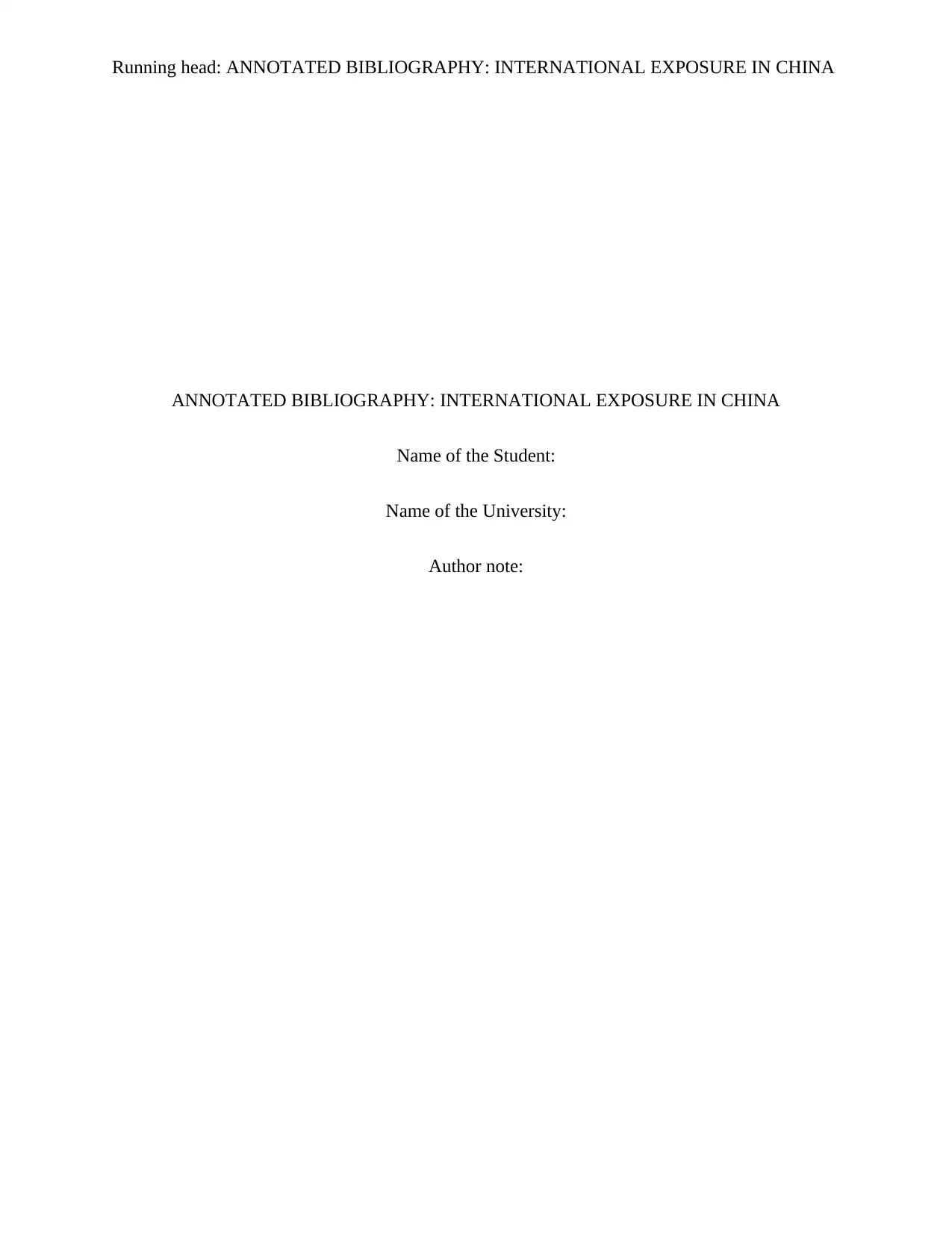
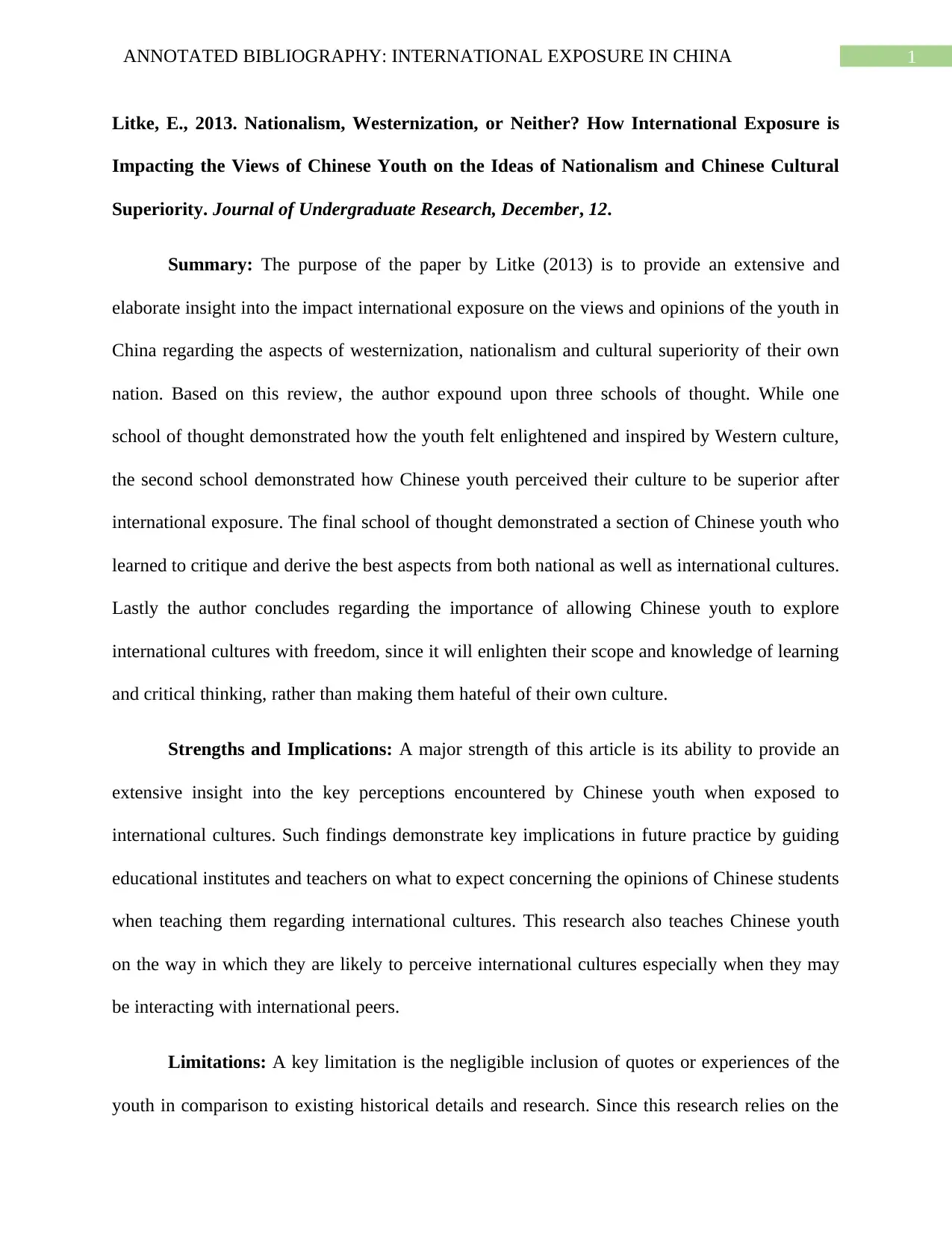
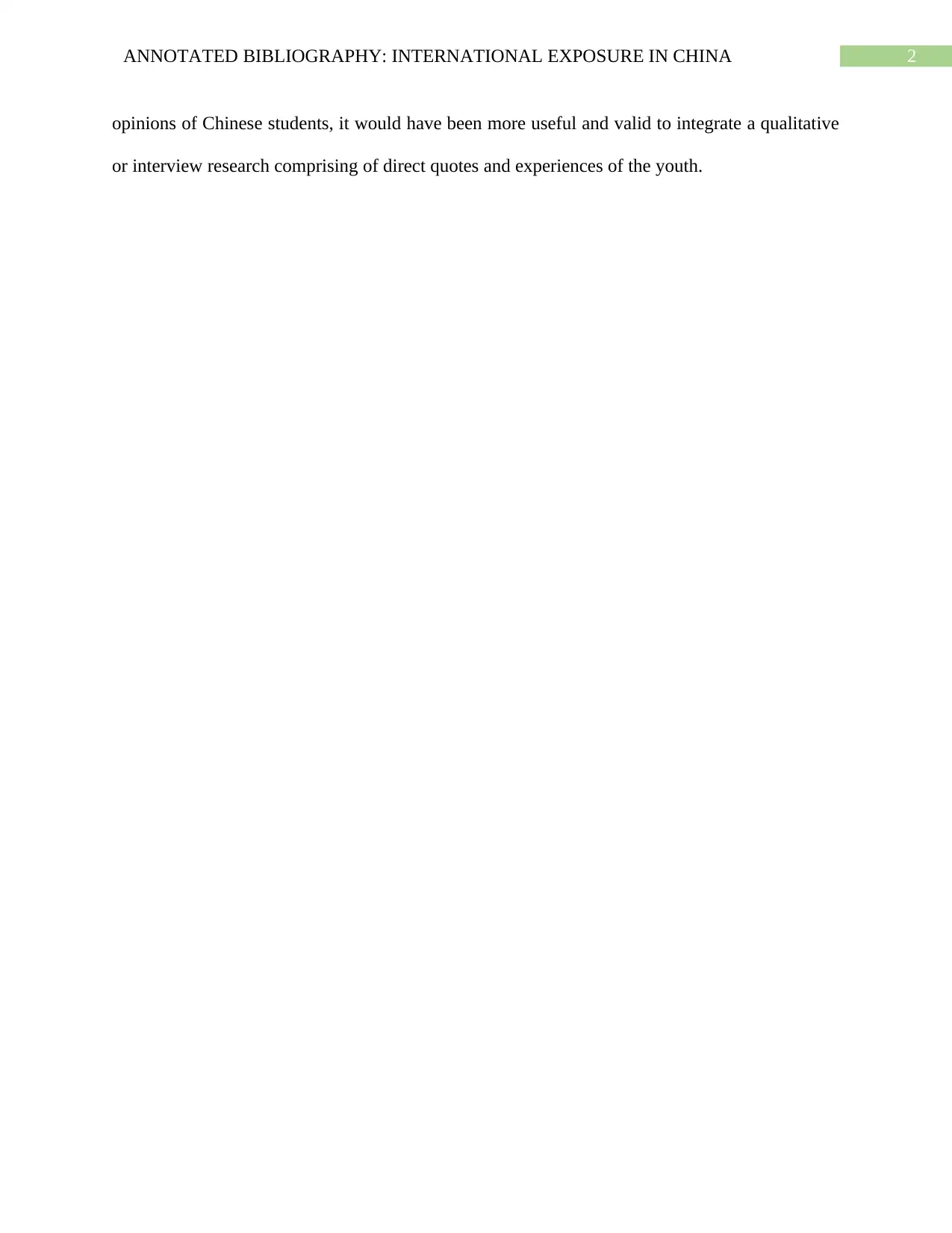

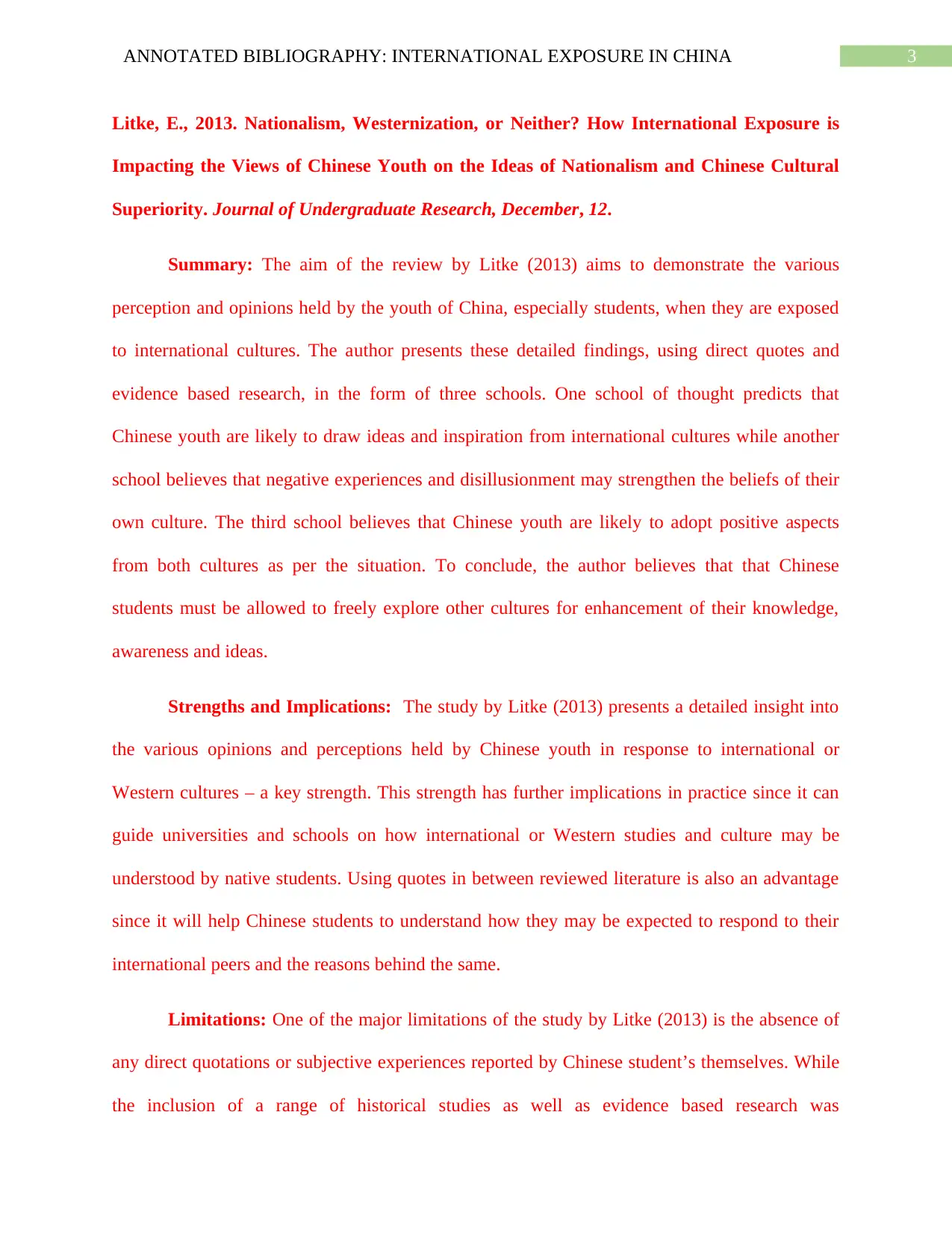
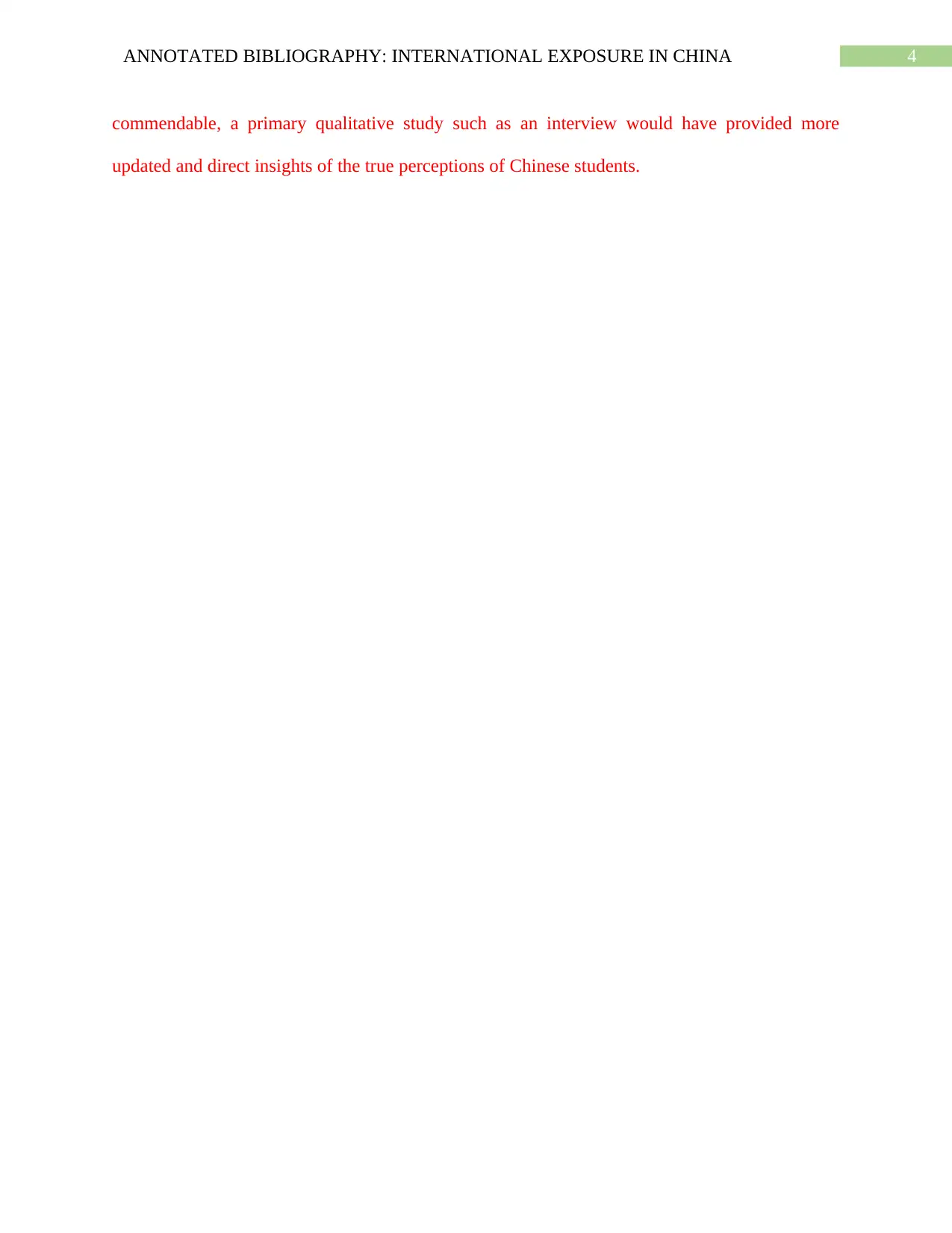
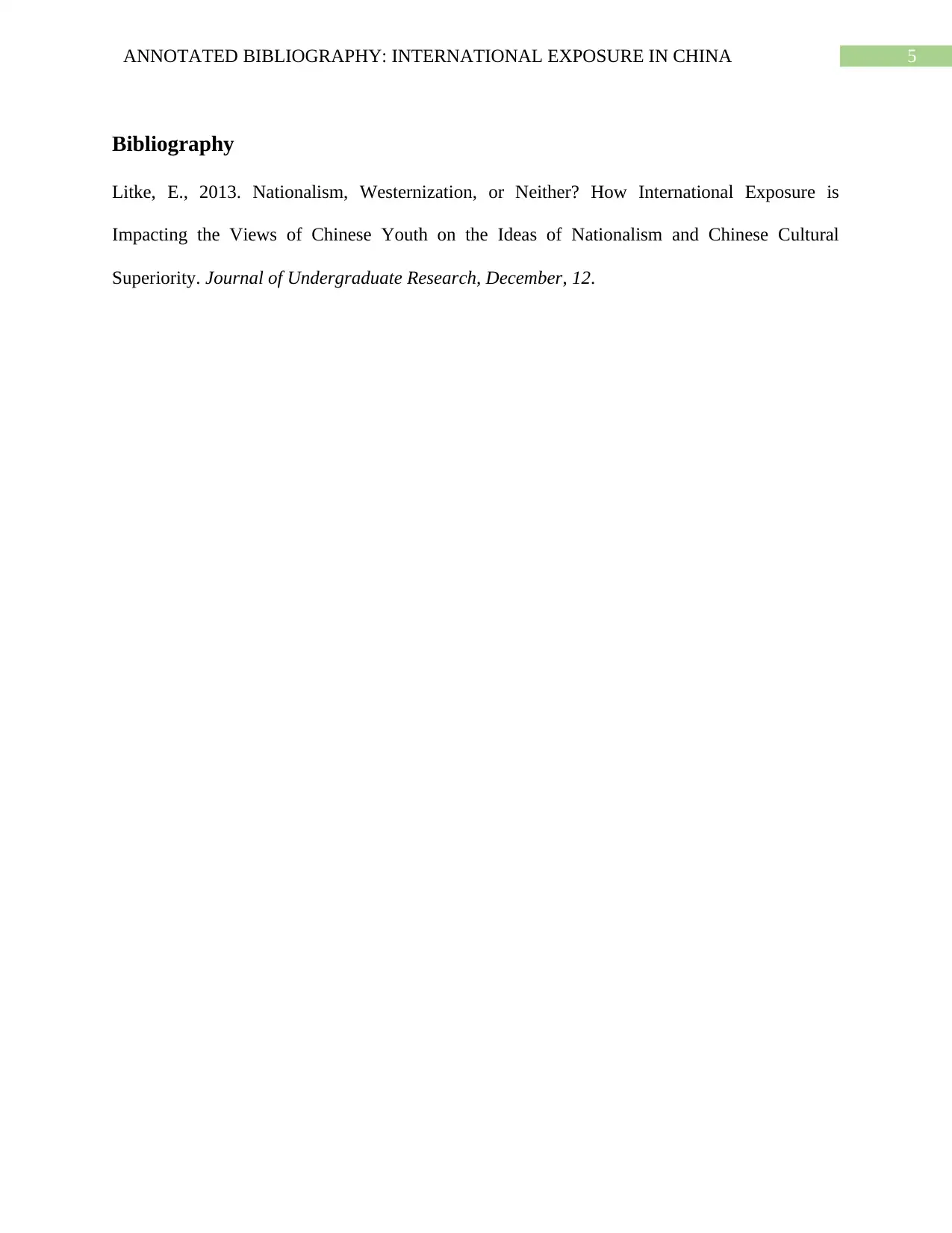
![[object Object]](/_next/static/media/star-bottom.7253800d.svg)